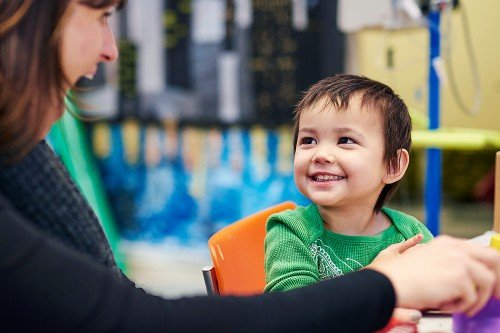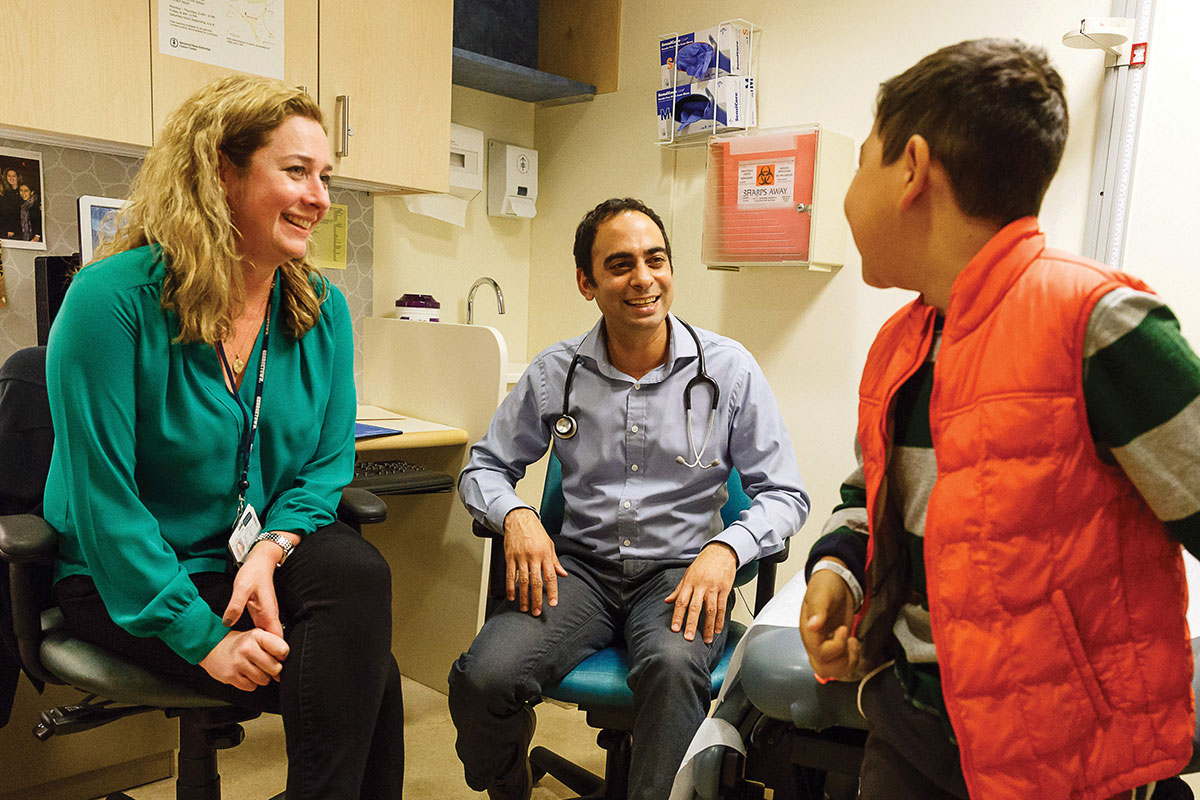

Any Olympian will tell you: A win for an individual is a win for the whole team. At Memorial Sloan Kettering, the stakes are higher than gold medals and glory. But the approach — people with diverse talents coming together in pursuit of success — is the same.
Each year, more than 800 children, teens, and young adults with cancer come to MSK’s Department of Pediatrics. Like every patient at MSK, they are seen by a team of experts, each focusing on a different facet of their disease. Now, the innovative new Pediatric Translational Medicine Program (PTMP) is uniting specialists across disciplines to take the discoveries coming out of MSK’s precision medicine efforts in adults and use them to improve diagnostics and treatments for children with all types of pediatric cancer.
The principles of precision medicine work in kids just as they do in adults, pinpointing mutations in a child’s tumor and using targeted drugs to treat them. Precision therapies can spare children the burdensome complications and side effects of conventional therapies like chemotherapy and radiation that can last years into adulthood.
Three MSK experts on this pioneering team — pediatric oncologists Filemon Dela Cruz, Neerav “Neal” Shukla and Andrew Kung, who chairs the Department of Pediatrics — sat down to talk about their exciting collaboration.
Why is pediatrics the next frontier of precision medicine?
Dr. Shukla: Our primary commitment is providing the best care possible to our patients using both conventional measures and more innovative technologies and therapies. But it’s also important that we learn as much as we can from every tumor sample we get. The PTMP will do just that — provide immediate benefit to our patients while also fostering research for future therapies.
Dr. Kung: Because childhood cancer is fortunately rare, we have the opportunity to comprehensively integrate research with patient care. It can be harder in other diseases with more patients. This helps us learn from every patient.
Dr. Dela Cruz: For example, when a doctor identities a person who may benefit from additional research into their specific cancer, we create a model of the patient’s tumor in the lab using their own cells. It allows us to evaluate how the cancer responds to medicines in real time and could help to guide future treatment. These models can also be used to learn more about other cancers beyond just that person’s. This way, what we learn from every child can help future generations.
What discoveries particularly excite you?
Dr. Shukla: During weekly meetings, when we review genetic profiling data, we sometimes see similarities between very different tumor types — a brain tumor and a sarcoma, for instance. To have experts across different teams discussing those commonalities and how to treat those patients is exciting. We’re also learning that although there are differences between pediatric and adult cancers, there is overlap as well. Most children’s cancer centers across the country won’t treat people above the age of 18 or 21. At MSK, we’re not limited by age.
Dr. Kung: Kids aren’t just small adults. That is true for many aspects of pediatric medicine. But when it comes to cancer, the things that go awry — the pathways, the genes — often are the same. We’re trying to move beyond this idea that something changes magically when a patient turns 18. Moving beyond that artificial age barrier is part of our effort to focus on the biology of a patient’s cancer in determining what treatments we give and how we give them.

What have been the most gratifying aspects of this collaboration?
Dr. Dela Cruz: When I talk to families, pretty much everyone wants to do sequencing because they know it might help their child. But equally so, they’re excited because they know that no matter what, it’s going to help someone else. That’s very heartening. This gift, as I always say, is going to help someone. I can’t guarantee that this is going to help your child, but I can guarantee that it will help someone or help us in our understanding in the future.
Dr. Shukla: My experience has been similar. The majority of families I speak to are excited that we can get more information from their cancer than they’ve been able to get before.
What’s next for the PTMP?
Dr. Shukla: We’re building out our efforts to learn more about people who are predisposed to get cancer. Families ask, “Can you give me any information about why this happened? Are there other people at risk in the family?” We’re learning that mutations in predisposition genes are more common than we thought. This is being led by [pediatric oncologist and medical geneticist] Michael Walsh.
Dr. Kung: More than 15 percent of our patients are born with something that contributed to the development of their tumor. So the implications extend beyond the patient potentially to other family members. These are patients and families that stand to benefit from programs to prevent or catch disease early.
Dr. Shukla: If we can identify at-risk people and family members earlier, that would be a huge step forward.






